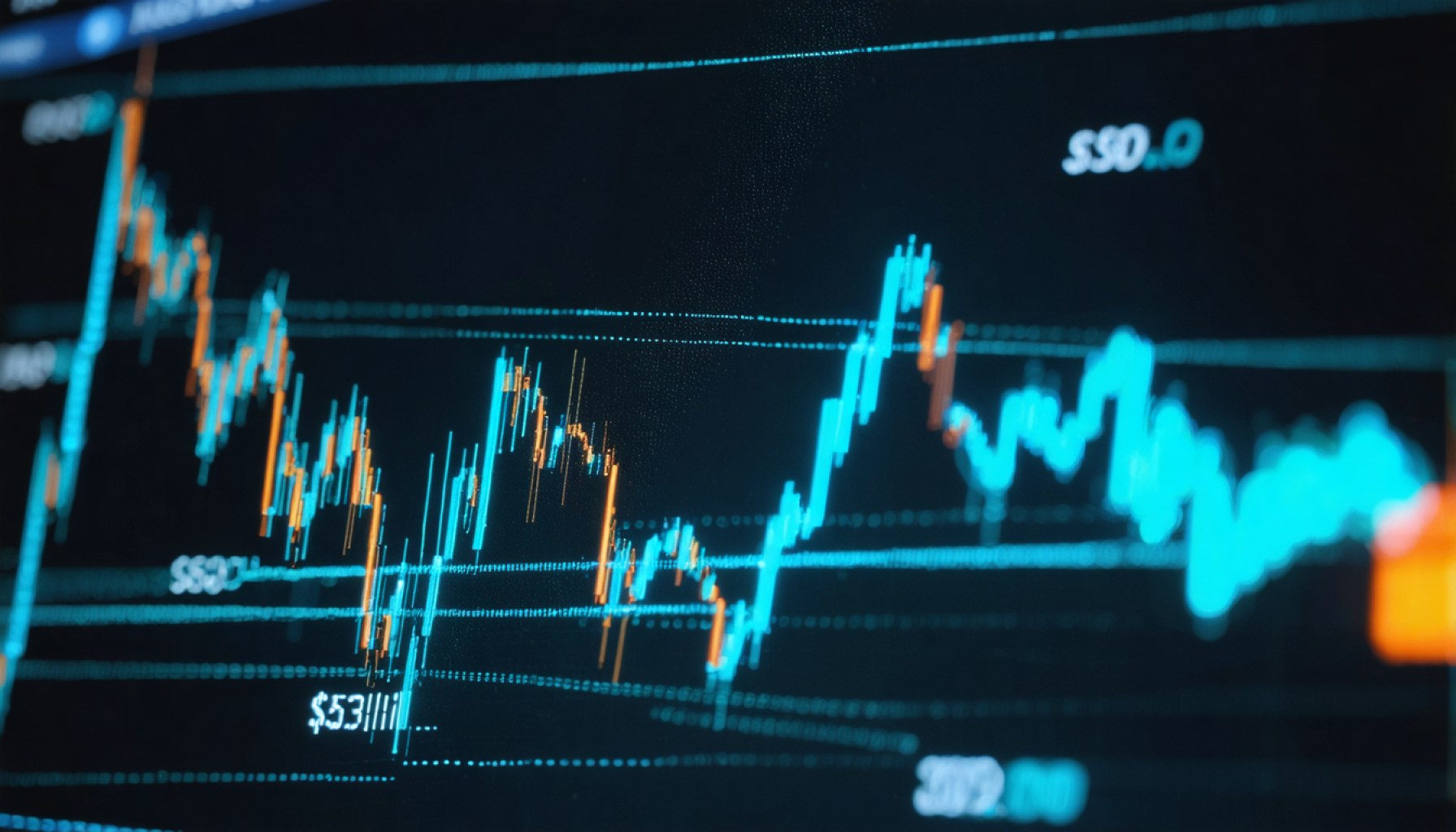- Stock market volatility intensifies due to tariffs, causing investor unease and financial instability.
- The Dow Jones Industrial Average experiences significant declines, reflecting broader economic concerns.
- Federal Reserve Chair Jerome Powell reassures investors of economic resilience, adjusting policies to maintain stability.
- Tariff impacts prompt businesses to reconsider strategies as they face potential cost increases and reduced profits.
- Uncertainty in financial markets reinforces the need for adaptability and foresight to navigate future economic challenges.
- The global economic landscape is affected, with current decisions influencing future outcomes.
A storm brews over Wall Street as a second consecutive day of stock market turbulence leaves investors reeling. The driving force behind this downturn? Tariffs. Implemented as part of a voluminous policy shift, these levies have sent ripples across financial markets, unsettling traders and economists alike.
Rushing like a chilling wind, the impact of these tariffs has been felt in every corner of the financial world. Investors hesitate, scrutinizing their portfolios with wary eyes, as iconic stocks dip and then plunge like seagulls diving for fish in stormy seas. The Dow Jones Industrial Average, an emblem of America’s economic might, succumbs to gravity’s relentless pull, casting an ominous shadow over economic stability.
This economic atmosphere recalls the capricious nature of financial markets, where fortune ebbs and flows like the tides. As Wall Street grapples with this volatile environment, the Federal Reserve’s watchful gaze turns to its helm, Chair Jerome Powell. Seeking to assuage investor concerns, Powell speaks on the economy’s enduring strength and adjusts monetary policies with the deftness of a seasoned helmsman steering through treacherous waters.
However, the perplexity lies not just with the immediate question of tariffs but with the future these policies portend. Businesses wary of increased costs and diminished profits face difficult choices, potentially reshaping the landscape of global commerce.
Amid this tense backdrop, the lesson remains: markets, by their nature, disdain uncertainty. To thrive, economies must navigate these turbulent waters with foresight and adaptability, lest they be capsized by unforeseen storms. As Wall Street steadies itself, the world watches closely, understanding that today’s decisions ripple into tomorrow’s realities.
Tariffs Shake Wall Street: What Every Investor Needs to Know Now
Understanding the Impact of Tariffs on the Stock Market
The recent turbulence on Wall Street, driven by a series of newly implemented tariffs, highlights the intricate connections between policy and market dynamics. These tariffs, designed to protect domestic industries, have instead prompted widespread concern and uncertainty across global markets.
How-To Cope with Market Volatility
1. Diversify Your Portfolio: Spread investments across various industries and asset classes to mitigate risk.
2. Stay Informed: Monitor economic policies and market trends to anticipate potential impacts on your investments. Staying updated on CNBC or WSJ can provide insights.
3. Consult Financial Experts: Regular sessions with financial advisors can help adjust strategies in response to changing market conditions.
Real-World Use Cases
– Automotive Industry: Companies relying heavily on imported materials, such as those in the automotive sector, may face increased production costs and potential shifts in pricing strategies.
– Consumer Electronics: With a significant portion of components sourced from abroad, electronics manufacturers might reevaluate their supply chains or absorb additional costs to maintain pricing structures.
Market Forecasts & Industry Trends
Despite the current turbulence, long-term market fundamentals remain robust. According to a report from Goldman Sachs, the economy’s underlying strength—boosted by technological innovation and consumer spending—can offset some medium-term disruptions.
Controversies & Limitations
The push and pull of tariffs bring several controversies:
– Global Trade Relations: Tariffs risk escalating trade tensions, potentially leading to retaliatory measures from other economies.
– Consumer Costs: Increased tariffs can lead to higher prices for everyday goods, impacting consumer spending.
Security & Sustainability
On the sustainability front, businesses are encouraged to explore local sourcing strategies as a hedge against the uncertainties posed by tariffs. This shift not only addresses cost issues but also promotes environmentally sustainable practices.
Insights & Predictions
Industry analysts predict a possible recalibration of global supply chains. This strategic shift could see companies investing in new markets or doubling down on innovations to drive efficiency.
Pros & Cons Overview
Pros:
– Protection of domestic industries
– Potential boost to local manufacturing
Cons:
– Increased consumer costs
– Potential for trade wars
– Short-term market volatility
Actionable Recommendations
– Reassess Investment Time Horizons: For those investing in volatile sectors, consider long-term horizons to weather temporary downturns.
– Explore Index Funds: As individual stocks fluctuate, index funds can offer more stable returns by spreading risk across multiple companies.
By understanding these dynamics, investors can better navigate the turbulence not just on Wall Street, but in their own financial ventures, ensuring stability and growth in uncertain times. For more updates on economic developments, check out Bloomberg.
